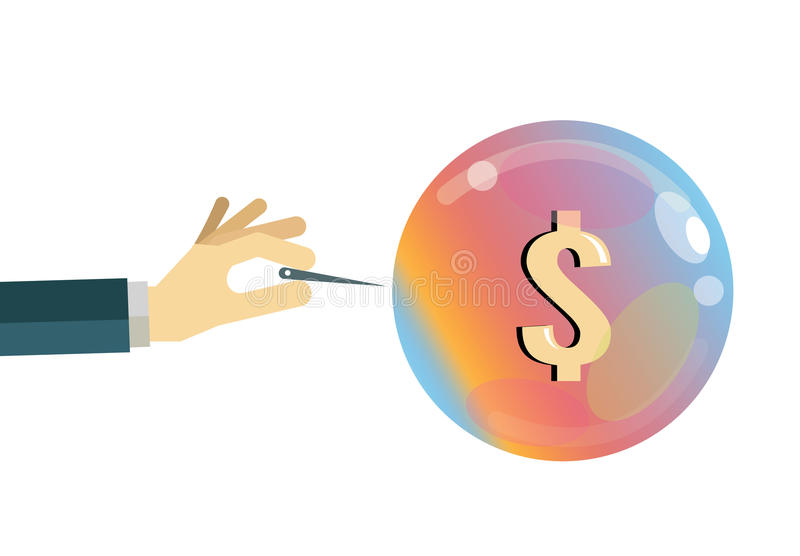
To learn how to trade in the forex market, you can use a demo account. You can test trading strategies and evaluate automated trading systems. Demo forex accounts can also help you learn about risk management. You can develop trading strategies by using a demo account. You don't have to spend any real money on it. Here are a few tips to help you make the most of it.
Traders have the opportunity to test new strategies
Demo forex accounts are a great way to get started in forex trading. Although it may seem risky to invest in real money, the demo account will give you valuable insight into the real world market. Demo accounts can also help you to become familiar with new trading software.
Demo forex accounts allow traders to experience the real-world trading experience without risking their money. Many traders find it difficult to control their emotions. But, they should learn how to manage these emotions in a controlled environment. Trader who can manage their emotions more effectively are more likely than traders who cannot. A demo forex account will help them learn how to cope with their emotions while trading on the real-world market.

They can evaluate automated trading systems
Demo accounts can be used by traders to test out whether or not an automated trading system suits them. Demo accounts are ideal for testing new trading strategies without risking real money. Demo accounts allow traders to examine the performance and effectiveness of automated trading systems without being affected by emotions. Demo accounts allow traders to practice their trading strategies and trade with small amounts of fake money. Demo accounts enable traders to discover different types of stocks and commodities.
One of the most notable benefits of demo accounts is that the amount of money that can be traded with them is larger than actual trading capital. The practice capital is not necessarily less realistic than the real trading capital. Trader can open a demo account with any amount of money. This allows them to learn about trading software without risking any real money. Furthermore, traders can practice trading by making use of tools such as automated trading systems, which can be more costly when used on live accounts.
They can test trading strategies.
Using a demo forex account is a great way to test out new trading strategies. The demo forex account offers a safe place to test new strategies and provides the ideal conditions for testing them. The demo trading conditions do not involve counterparty risk, manipulation, or stop-loss hunting, which is not the case in the real world. Traders should practice new trading techniques before switching to live trades.
Demo forex accounts allow you to practice forex trading before investing in real money. Demo accounts can be used to learn new strategies and test them before you make real-money trades. Demo accounts, unlike a live account require no financial risk. This makes them the ideal way to learn forex trading before investing your money.

They can also learn about risk management
Demo forex accounts can be very useful in learning risk management and trading. Learn from your mistakes and observe how the market reacts to certain conditions. It is important to be cautious when you use a demo account. Follow these tips to prevent you from losing your cash. Before you start trading forex, make sure to learn more about risk management.
You should always remember that demo accounts may not be as emotional as a live account, so you can trade real money. Because the stakes on demo accounts are smaller and you can't see the negative effects of losing money, practicing emotional control is less effective than on real accounts. However, you can only risk a small amount every time you trade on a live account.
FAQ
Who can trade on the stock market?
Everyone. But not all people are equal in this world. Some have greater skills and knowledge than others. They should be rewarded.
There are many factors that determine whether someone succeeds, or fails, in trading stocks. You won't be able make any decisions based upon financial reports if you don’t know how to read them.
Learn how to read these reports. Understanding the significance of each number is essential. You must also be able to correctly interpret the numbers.
This will allow you to identify trends and patterns in data. This will assist you in deciding when to buy or sell shares.
This could lead to you becoming wealthy if you're fortunate enough.
What is the working of the stock market?
You are purchasing ownership rights to a portion of the company when you purchase a share of stock. A shareholder has certain rights over the company. He/she is able to vote on major policy and resolutions. The company can be sued for damages. And he/she can sue the company for breach of contract.
A company can't issue more shares than the total assets and liabilities it has. This is called "capital adequacy."
Companies with high capital adequacy rates are considered safe. Companies with low ratios are risky investments.
How Does Inflation Affect the Stock Market?
Inflation is a factor that affects the stock market. Investors need to pay less annually for goods and services. As prices rise, stocks fall. You should buy shares whenever they are cheap.
How can someone lose money in stock markets?
The stock market is not a place where you make money by buying low and selling high. You lose money when you buy high and sell low.
The stock market offers a safe place for those willing to take on risk. They would like to purchase stocks at low prices, and then sell them at higher prices.
They believe they will gain from the market's volatility. They could lose their entire investment if they fail to be vigilant.
How do I choose a good investment company?
It is important to find one that charges low fees, provides high-quality administration, and offers a diverse portfolio. Commonly, fees are charged depending on the security that you hold in your account. Some companies have no charges for holding cash. Others charge a flat fee each year, regardless how much you deposit. Others charge a percentage based on your total assets.
Also, find out about their past performance records. Poor track records may mean that a company is not suitable for you. Avoid companies that have low net asset valuation (NAV) or high volatility NAVs.
Finally, it is important to review their investment philosophy. A company that invests in high-return investments should be open to taking risks. If they're unwilling to take these risks, they might not be capable of meeting your expectations.
What is the difference between a broker and a financial advisor?
Brokers are specialists in the sale and purchase of stocks and other securities for individuals and companies. They handle all paperwork.
Financial advisors have a wealth of knowledge in the area of personal finances. They are experts in helping clients plan for retirement, prepare and meet financial goals.
Banks, insurance companies and other institutions may employ financial advisors. They could also work for an independent fee-only professional.
You should take classes in marketing, finance, and accounting if you are interested in a career in financial services. It is also important to understand the various types of investments that are available.
Why are marketable securities Important?
An investment company's primary purpose is to earn income from investments. This is done by investing in different types of financial instruments, such as bonds and stocks. These securities are attractive to investors because of their unique characteristics. They may be safe because they are backed with the full faith of the issuer.
It is important to know whether a security is "marketable". This is how easy the security can trade on the stock exchange. Securities that are not marketable cannot be bought and sold freely but must be acquired through a broker who charges a commission for doing so.
Marketable securities include government and corporate bonds, preferred stocks, common stocks, convertible debentures, unit trusts, real estate investment trusts, money market funds, and exchange-traded funds.
These securities can be invested by investment firms because they are more profitable than those that they invest in equities or shares.
Statistics
- Our focus on Main Street investors reflects the fact that American households own $38 trillion worth of equities, more than 59 percent of the U.S. equity market either directly or indirectly through mutual funds, retirement accounts, and other investments. (sec.gov)
- US resident who opens a new IBKR Pro individual or joint account receives a 0.25% rate reduction on margin loans. (nerdwallet.com)
- The S&P 500 has grown about 10.5% per year since its establishment in the 1920s. (investopedia.com)
- Individuals with very limited financial experience are either terrified by horror stories of average investors losing 50% of their portfolio value or are beguiled by "hot tips" that bear the promise of huge rewards but seldom pay off. (investopedia.com)
External Links
How To
How to make your trading plan
A trading plan helps you manage your money effectively. This allows you to see how much money you have and what your goals might be.
Before you start a trading strategy, think about what you are trying to accomplish. You may want to save money or earn interest. Or, you might just wish to spend less. If you're saving money you might choose to invest in bonds and shares. You can save interest by buying a house or opening a savings account. You might also want to save money by going on vacation or buying yourself something nice.
Once you have a clear idea of what you want with your money, it's time to determine how much you need to start. This depends on where you live and whether you have any debts or loans. It is also important to calculate how much you earn each week (or month). Your income is the net amount of money you make after paying taxes.
Next, you will need to have enough money saved to pay for your expenses. These include bills, rent, food, travel costs, and anything else you need to pay. Your total monthly expenses will include all of these.
Finally, you'll need to figure out how much you have left over at the end of the month. This is your net available income.
Now you know how to best use your money.
To get started with a basic trading strategy, you can download one from the Internet. Ask someone with experience in investing for help.
Here's an example of a simple Excel spreadsheet that you can open in Microsoft Excel.
This graph shows your total income and expenditures so far. This includes your current bank balance, as well an investment portfolio.
And here's another example. This was created by an accountant.
This calculator will show you how to determine the risk you are willing to take.
Don't try and predict the future. Instead, be focused on today's money management.